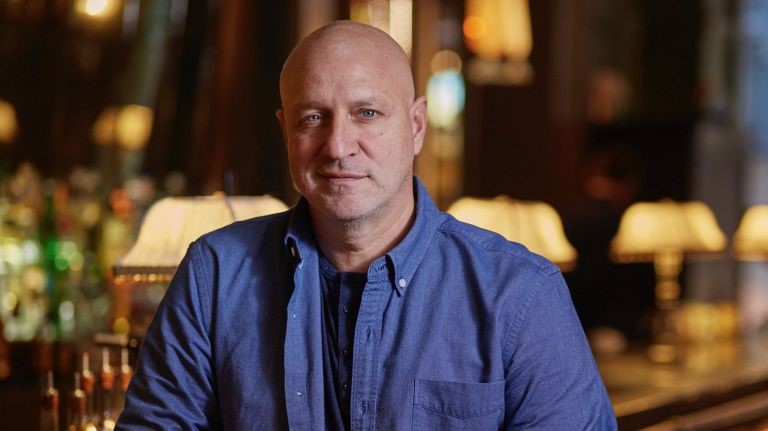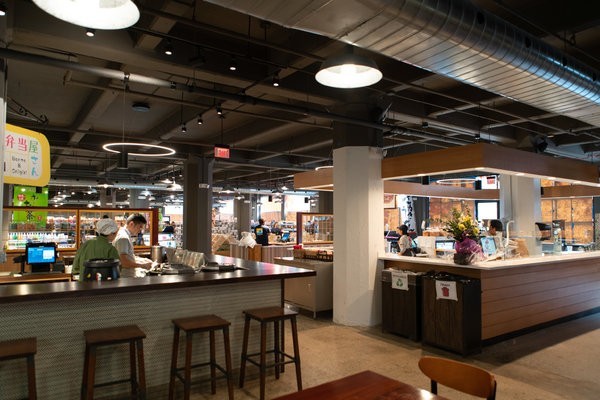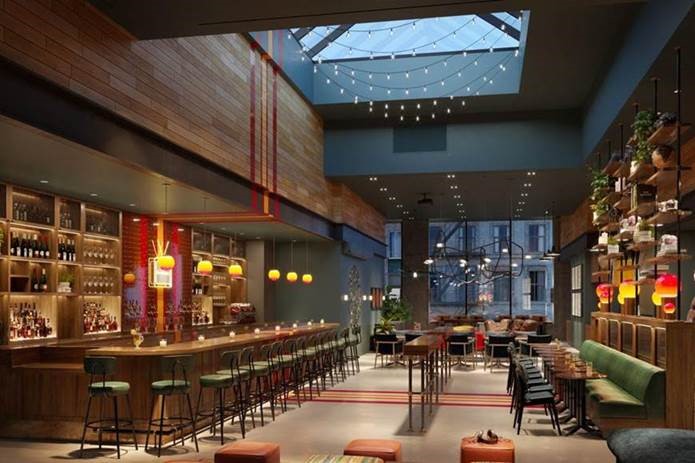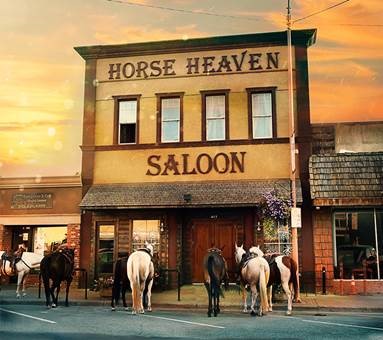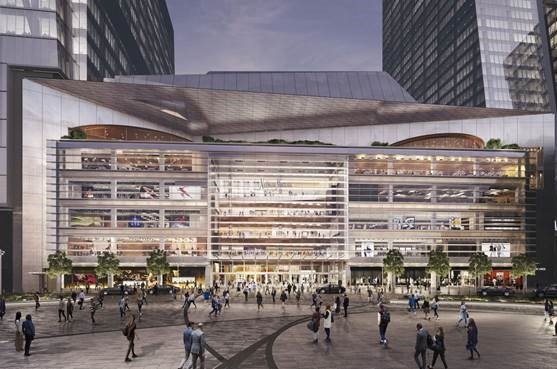Crafted Hospitality’s Tom Colicchio, the head judge and producer of the hit TV show “Top Chef”, opened its newest location at Roosevelt Field® shopping center in Garden City. “Small Batch” is a rustic American restaurant allowing patrons to “…connect with where we are, where we come from and who we are with…” The restaurant will focus on what Long Island produces and will feature Long Island beer, wine and spirits. Sources include 8 Hands Farm (Cutchogue), Peeko Oysters (New Suffolk) and Long Island Spirits (Bating Hollow). According to Mr. Colicchio, “Small Batch will go beyond being a great dining destination. Small Batch will connect with and support the Long Island food community; we will be the table where purveyors, cooks and guests can come together to celebrate a way of doing business that will create better food for all of us.” Crafted Hospitality currently operates restaurants in New York City, Los Angeles and Las Vegas. Bernstein Redo, P.C. is proud to be part of the Crafted team.
Japan Village, New York City’s first Japanese food hall, recently opened within the Industry City complex in Sunset Park, Brooklyn. The 20,000 square foot operation includes 11 food vendors and a Sunrise Mart market, the newest location for the very successful grocery chain that has operated in Manhattan for the past 20 years. On one side of the completely renovated building is the food hall consisting of kiosks and stalls for various staples of Japanese cuisine such as ramen and okonomiyaki for dine-in or take to-go. The full-service grocery store of specialty Japanese products is on the other side of the large space and, in addition to hard-to-find products of Japanese origin, the market is complete with an in-house butcher and fishmonger. A centralized bar area provides Japanese beer and sake to complete the immersive experience. Japan Village is owned by Tony Yoshida and Takuya Yoshida. Bernstein Redo, P.C. is proud to be a part of the Industry City and Japan Village team.
Ariel Palitz, Senior Executive Director of the New York City Office of Nightlife, and referred to as the “Nightlife Mayor”, conducted the last of the five Borough meetings of the office’s Listening Tour in Manhattan last week. Hundreds of residents, business owners, and community board members attended the meeting at The Town Hall on West 43rd St. Manhattan Borough President Gale Brewer, as well as a number of City Council members, spoke at the gathering. Director Palitz moderated a panel of representatives from 10 city agencies including the NYPD, the FDNY, DOB, and the NYS Liquor Authority, represented by Deputy CEO Jones. Borough President Brewer said that nightlife was “an economic engine in the City” generating over $48 billion in revenue. At the same time, she expressed concern that there were, by her count, 653 new liquor licenses issued this year through mid-October, though she did not state how many of those were liquor or grocery stores as opposed to restaurants, bars or hotels. That figure did also not take into account closings. Director Palitz said that the growth of licenses issued is only about 2%, less than in prior years. She said that the goal of her office is to balance the vitality of the industry with quality of life issues and welcomes comments from the industry and from concerned residents.
Paul Stallings ’s trendy Hotel on Rivington has been a fixture in the Lower East Side. Stallings, a former Wall Street lawyer, opened the area’s premier boutique hotel in 2004. Bernstein Redo, P.C. has represented the Rivington since it opened. Then on the cutting edge, it was transformative of the neighborhood. The 21-story glass structure has had a number of restaurants operate within the hotel over the past decade. As reported this past weekend, now it is being sold to the Kushner family. This is the first venture into the hospitality business for the Kushner’s.
New York City voters yesterday overwhelmingly approved imposing term limits on community board members. Those boards are intimately involved in the liquor license process in the City and have varying degrees of influence on license approvals. Mayor Bill deBlasio’s Charter Revision Commission had suggested this change. The view of the Mayor and the Commission was that the boards did not always reflect the changing demographics of the neighborhoods they represent and that new members would bring fresh ideas. Manhattan Borough President Gale Brewer opposed the change and was of the opinion that experienced board members should not be jettisoned and replaced by new inexperienced members who could not hold up against experienced real estate developers. City Council Speaker Corey Johnson, formerly chair of Manhattan Community Board 4, also opposed term limits. There were other council members however who supported the measure, as did the Brooklyn Borough President, Eric Adams. With yesterday’s approval of the proposal, board members will be limited to two four year terms and then would have to take a two year hiatus before they could be considered for reappointment. This will go into effect in April 2019. Terms served prior to that date will not count towards the term limit.
The newest addition to the burgeoning downtown hospitality scene is Moxy NYC Downtown, a 30-story hotel that just opened on Ann Street in the Financial District. Moxy, the Marriott Hotel’s experiential hotel affiliate, is known for its approachable service and vibrant, playful design aesthetic, brand hallmarks which are all on display at the new Moxy NYC Downtown. The hotel, a newly constructed building overlooking Theater Alley near the Brooklyn Bridge, includes as a communal hub a third-floor restaurant, bar and lounge area that is unlike any other experience in Manhattan, complete with arcade games, skeeball, jenga, and even a basketball court for shooting hoops or hosting private events. In addition to providing a lively social space, Moxy NYC Downtown offers a menu by celebrated Chef Akhtar Nawab (Alta Calidad) and a beverage program curated by restauranteur Jon Neidich (Acme, Happiest Hour, Tijuana Picnic). Bernstein Redo, P.C. is proud to be part of the Moxy team.
DLJ Real Estate Capital Partners is developing the historic twelve story 1912 Jamulowsky Bank Building at 9 Orchard Street into a 116 room full service hotel. DLJ purchased the Beaux arts style building for $33 million in 2011 and expects to open the hotel in 2019. The hotel will have rooftop indoor and outdoor event space with sweeping views of the Lower East Side and an elegant fifty foot domed spire. The ground floor will feature a hotel lobby bar with a soaring high ceiling, full service restaurant and a neighborhood lounge with sidewalk café on Allen Street. The food and beverage team behind the project also operates the Eventi Hotel on Sixth Avenue and the Wales Hotel. Bernstein Redo, P.C. is proud to be part of the DLJ and 9 Orchard team.
After years at its small Rivington Street store, the famous Morganstern’s Finest Ice Cream, once of the city’s best, has busted out and opened a much larger space at the corner of Houston Street and LaGuardia Place, formerly home to Silver Spurs. The new store will serve a whopping 88 different flavors at its new location, which opened last week. Table and counter seating is offered along with a large sidewalk café to enjoy not only ice cream but also pies and cakes made on premises along with other developing menu items. Some of the new flavors unleashed by Nick Morganstern include French Fry, Vanilla with Black Pepper Molasses, Pistachio Black Currant Jelly, Banana Kalamansi, and many other originals. Bernstein Redo, P.C. is proud to be part of the Morganstern’s Finest team.
On Friday November 2, 2018 at 9:30 a.m. Bernstein Redo, P.C.’s Donald Bernstein will teach a three hour class sponsored by the National Law Institute on New York Retail Liquor Licenses at 1500 Broadway in Manhattan. This class will be for 3 continuing legal education credits, though it is not limited to attorneys. Anyone interested may attend. The class will review all aspects of the licensing law and process, including who may be licensed and who may not, the tied-house rule, the 200 foot rule, and the public interest test of the 500 foot rule, the legal and practical challenges of licensing a hotel, issues regarding licensing private members clubs, temporary permits, the community board process, and other issues. There is no charge for this class. Registration is through the National Law Institute website, www.nationallawinstitute.com.
Neiman Marcus, the specialty retailer, will be opening a three story 250,000 square foot retail store in the newly developing Hudson Yards on 30th Street and Tenth Avenue in Manhattan. This will be the first Neiman Marcus retail outlet in New York City, joining the company’s current Bergdorf Goodman location at Fifth Avenue and 58th Street. The Hudson Yards store will be on the fifth through seventh floors of a one million square foot retail mall and will offer sweeping views over the vast public plaza and monumental public place being designed by Thomas Heatherwick and Thomas Woltz, the Culture Shed, the planned home of New York Fashion Week and the High Line. Slated to open in early 2019, the store will have a restaurant and food and beverage outlet on each of its three floors. Bernstein Redo, P.C. is proud to be part of the Neiman Marcus team.

